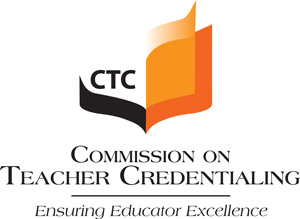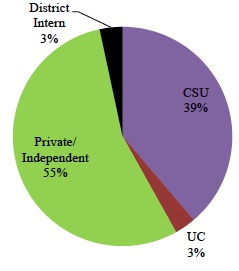As English Learning Students Under-Perform, Teaching Standards to Rise

The California Commission on Teacher Credentialing (CTC) is ready to hold teacher interns to higher standards with regards to English-learning (EL) instruction. A CTC hearing last Thursday drew attention to the issue.
The CTC will establish a committee of stakeholders to develop a plan between April and June.
English learning students are one of the under-performing demographics that are a focus in closing the achievement gap. However, not all intern teachers have full English-learner authorization (ELA) or training to handle EL students.
Share this article: Tweet
A teacher internship is one path to obtaining a teaching credential. Interns are prepared with a 120-hour, five week pre-service training program.
This is required by state law, but the commission is likely to propose new regulations. A handful of possible options for interns who do not have ELA came out of last week's hearing.
The first option, and the one that may garner a consensus, is to integrate an ELA process in the 120-hour training requirement. The soon-to-be established stakeholder committee would review the changes made in the training program.
Other options on the table include requiring interns to pass the California Teacher of English Learning (CTEL) exam, or increasing intern supervision until an ELA is obtained. These options would be most important to current interns.
However, questions of whether or not changes are to be retroactive or require current interns to revisit training are to be answered in the coming months.
The CTC notes that focus on the change in policy is about the time of ELA acquisition:
"The key policy issue discussed in this agenda item concerns the timing of when an authorization to teach students who are English learners should be awarded to an individual who holds an Intern Credential."
Teach for America is an organization that develops intern teachers. Interns are often assigned to under-performing schools where low-income and EL students attend. It is one of the key stakeholders and was the center of the emotional debate that took place.
In a letter endorsed by many charter operators, education officials, and organizations -- like Teach for America -- an EL waiver process is viewed as an increase in unneeded bureaucracy. The letter also states that current practice abides by state law which allows interns to teach EL students: Tweet it: Tweet
"To change the current practice would be contrary to prevailing law and will produce unwanted and unfavorable consequences for districts, schools and students."Credit: Edsource.org, percentage of paths chosen for teacher credentials in California for 2009-2010.
Studies on the effectiveness of Teach for America have mixed results. In 2012, there were 2,252 intern teachers in California, around 700 were with Teach for America.
Arguments for a change in credentialing include guaranteed equitable service. Families of low-income neighborhoods expect the same level of education as any other family or neighborhood.
The issue of equity arises when it is framed as a developing teacher taking the place of an experienced educator.
Although intern teachers are a very small portion on the teaching pool, the commission anticipates the perception of under-qualified teachers leading classrooms. Education is one profession that is heavily affected by under-performing staff, and mishandling youth development is a risk.
Careful consideration is needed if action is taken on how to teach California's 1.4 million English learning students.






